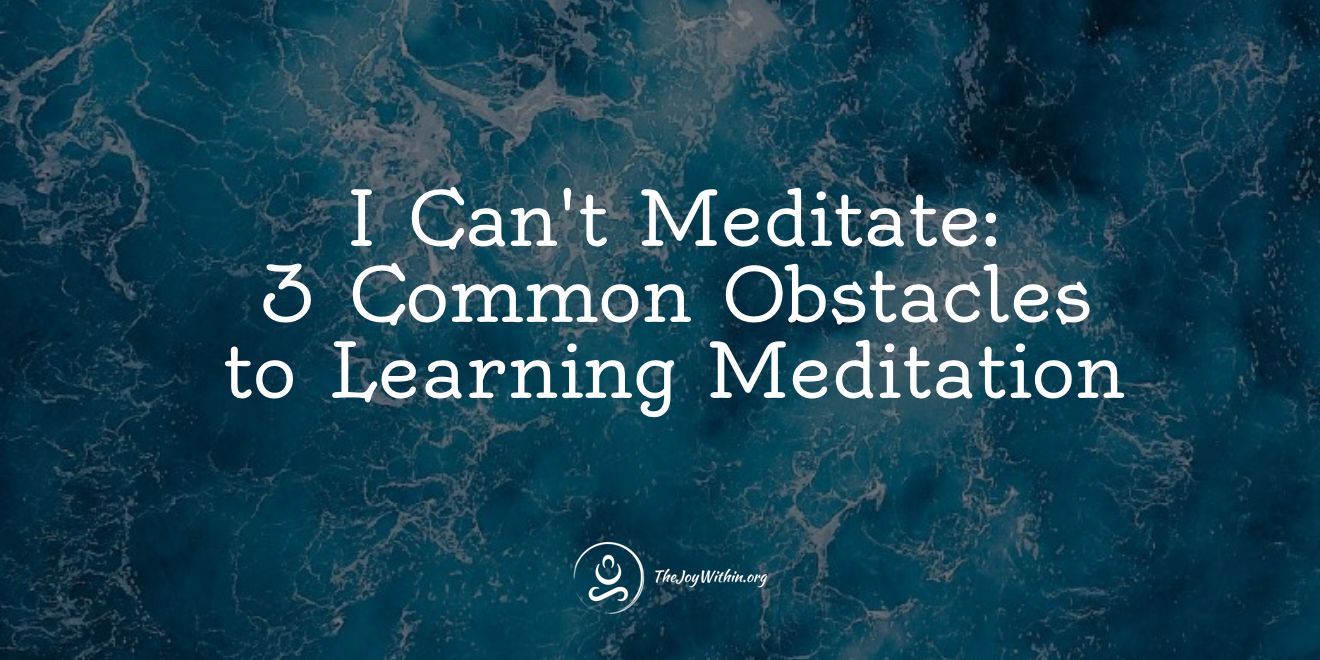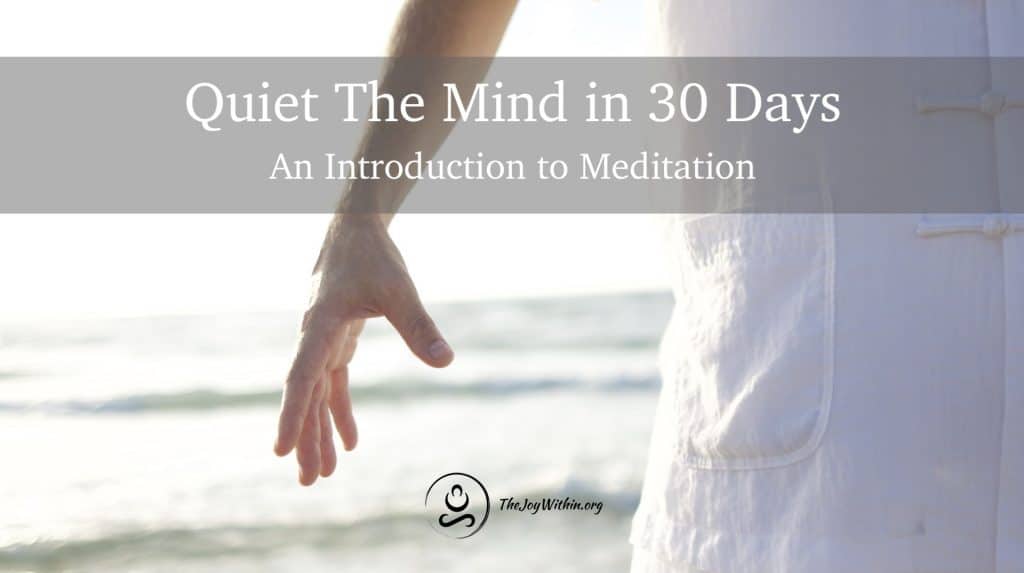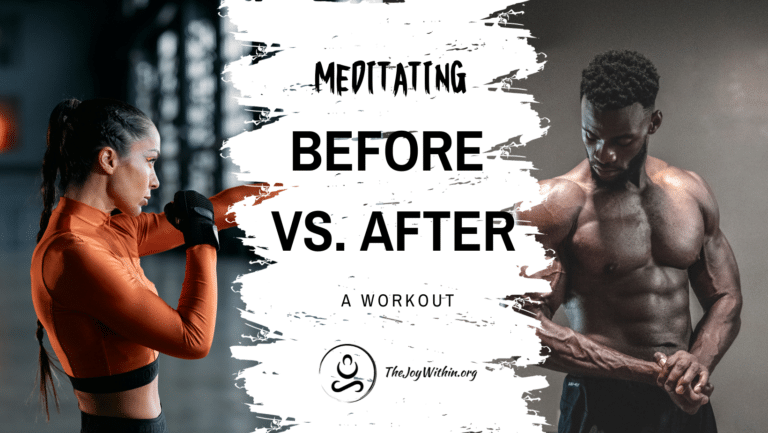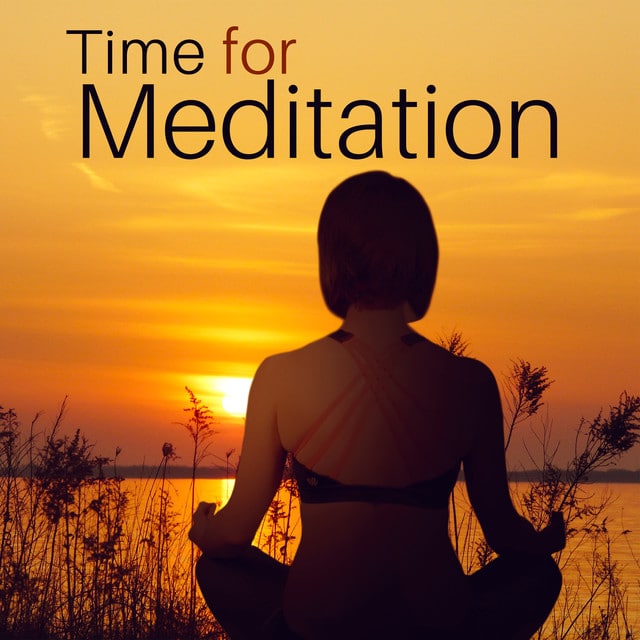There are tons of reasons why meditation is important, but, for a lot of people, there’s a huge gap between knowing you should take time to start a meditation habit, and actually sitting down to do it.
Sometimes, it feels like there are overwhelming obstacles keeping you from doing it, so, in this post I want to help you to overcome them.
Why Everyone Can Meditate
Firstly, I want to correct a common misconception:
Meditation is NOT difficult.
Many people approach their meditation practice as something they believe is going to be difficult, or challenging. But, that doesn’t have to be the case.
At it’s core, meditation is simply a process of building your concentration, and awareness. It relies on very simple, automatic actions that we all do, every day to change the way you perceive your world.
I like to say that if you can breathe, you can meditate.
Simply start paying more attention to your breath, and you are already on the path towards meditation.
You don’t need any special gear, or to contort your body into an uncomfortable position. Just breathe.
More than anything, meditation is a habit. It is a skill and, like any skill, it gets better the more you practice it. The tips I’ll share below are about learning how overcome the negative stories and self-talk that stop you from building this habit.
Read more about how to change your habits in this post.
The 3 Main Challenges to Starting a Meditation Practice
Just as I said that meditation, as a practice, is not inherently difficult, so too these 3 obstacles do not have to be a roadblock for you.
Each of them reflects a story that you tell yourself. When you believe your meditation practice will be difficult, you create that experience for yourself.
Shifting your perspective will open you up to a new sense of ease, effortlessness, and purpose as you pursue this new skill.
“I can’t focus.”
I want to let you in on a little secret:
No one is good at focusing when they first start meditating.
Often, feeling like you “can’t focus” stops people from meditating, but that’s exactly the reason why you need to build up your skills.
The reality is, everyone has stray thoughts, and, to some degree or another, everyone feels out of control of their thoughts.
Often, when people are new to meditation, that have the sense that their mind runs wild, and they experience even more random thoughts than usual.
It’s important to understand that this experience is normal, and is part of the process. If you feel this way, it isn’t that you’re having more rampant thoughts, but that the meditation is starting to show you the thoughts you have always been thinking.
In other words:
Feeling like you can’t focus in meditation, is one of the first signs that your meditation practice is working.
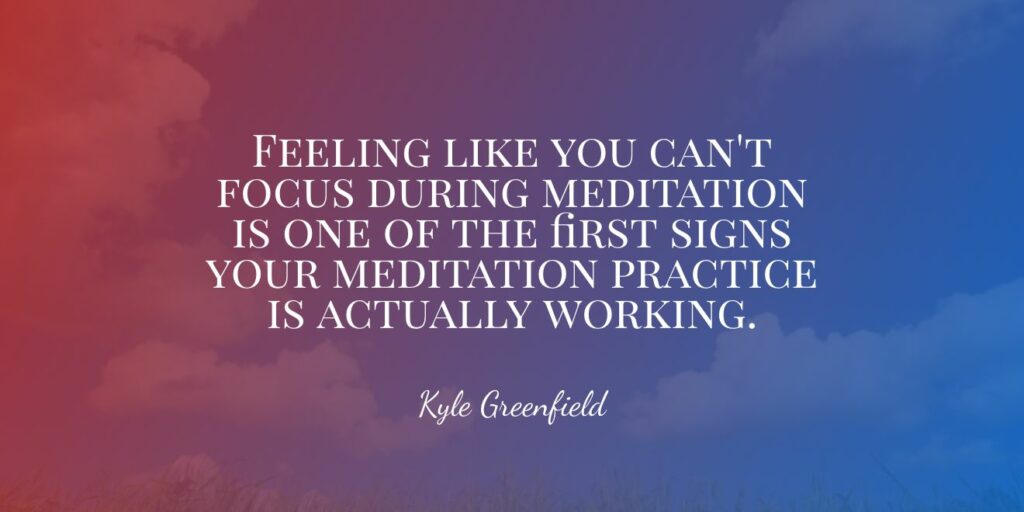
To remedy this, practice shortening the amount of time you expect to remain focused. Bring your attention to your breath, and accept that it’s ok if you can only focus for a few seconds, and then find your mind runs wild for several minutes.
Try this simple guided breath meditation to help. It centers in on the pace of your breath, helping to reset your focus when it goes astray.
“I don’t have time.”
The second major obstacle I hear from new students is a lack of time. And, there are two suggestions I would give if you struggle with this.
Meditate In The Time You Have
The first point is to understand that there is no set amount of time you have to have in order to meditate. While I usually recommend starting with 10-15 minutes a day, you can always adapt your practice to fit into your schedule.
There are plenty of short, simple breath techniques that can be done in the space of a few seconds or a minute, which means that any spare moments you have to yourself can be commandeered for a short meditation.
Personally, I like to use a technique I call “Stepping Back.” It’s an easy 30-second process that you can incorporate into your day, no matter where you are or how little time you may have.
Watch this video to learn the technique.
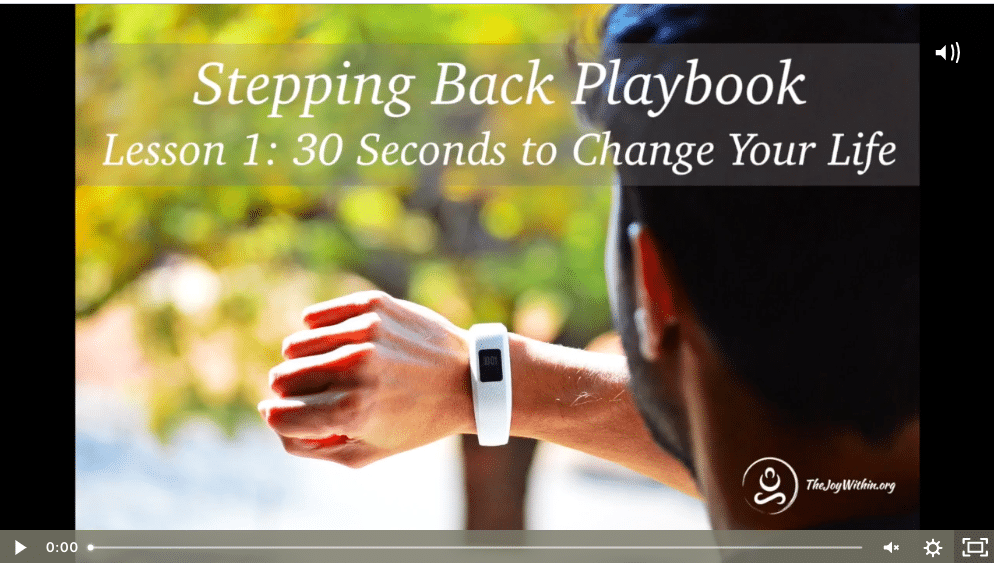
Recognize That Meditation is an Investment that Saves You Time
The second point to consider is that meditation does not “take” time, but saves times.
When we feel cluttered, stressed, and overwhelmed with the demands of modern life, we do not think and act efficiently. We lose clarity, and often wind up replacing good judgment with more work.
In other words: when we feel pressed for time, we just end up spinning our wheels.
Meditation will actually help you with this problem. It has been proven to help improve memory and decision making, give you more energy, and increase willpower and self-discipline.
This frees you to operate at a higher level, and create more space for yourself.
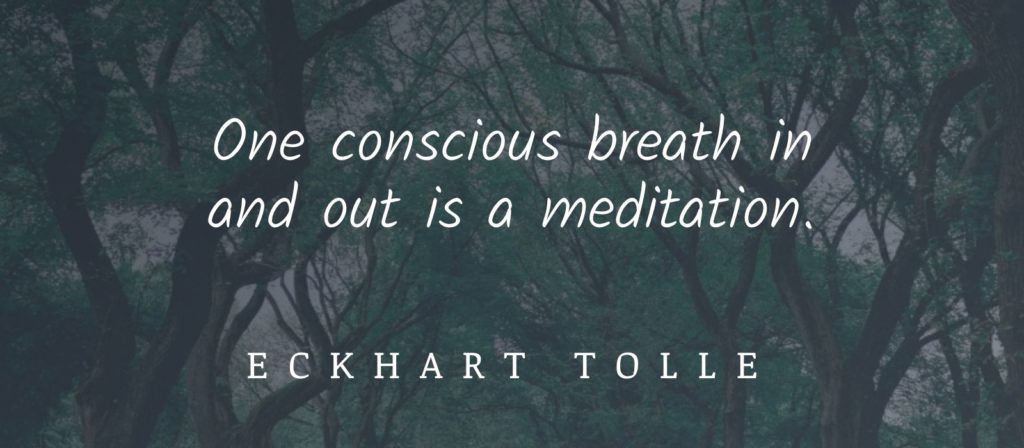
“It’s not who I am.”
Lastly, one of the biggest hurdles to starting a meditation routine has to do with our individual identify.
A lot of people have a tendency to think of meditation as “new age,” or “spiritual,” in a way that conflicts with who they see themselves to be.
We have a stereotype that pursuing a path of inner growth is inconsistent with living in the modern world, and thus we think that meditation just doesn’t fit into that definition.
This can be a huge issue for a lot of people, and I unpack it in more detail in this podcast episode.
Take Our 30-Day Meditation Challenge
Whatever obstacle resonates with you, the solution to each of them is simply to dive in and start meditating.
There is no ‘right’ or ‘wrong’ way to do this: your practice can be as simple as taking a few minutes to close your eyes and breathe deeply.
But, if you’re struggling to get started, I recommend you take our 30-day challenge, with our Quiet The Mind – Introduction to Meditation program.
This will guide you through the how and why of meditation, and expose you to multiple styles, so you can find the techniques that work well for you.
It’s also important because committing to the program gives you a clear, daily practice to follow for a month…which should be enough to kickstart your habit and get you pointed in the right direction.

